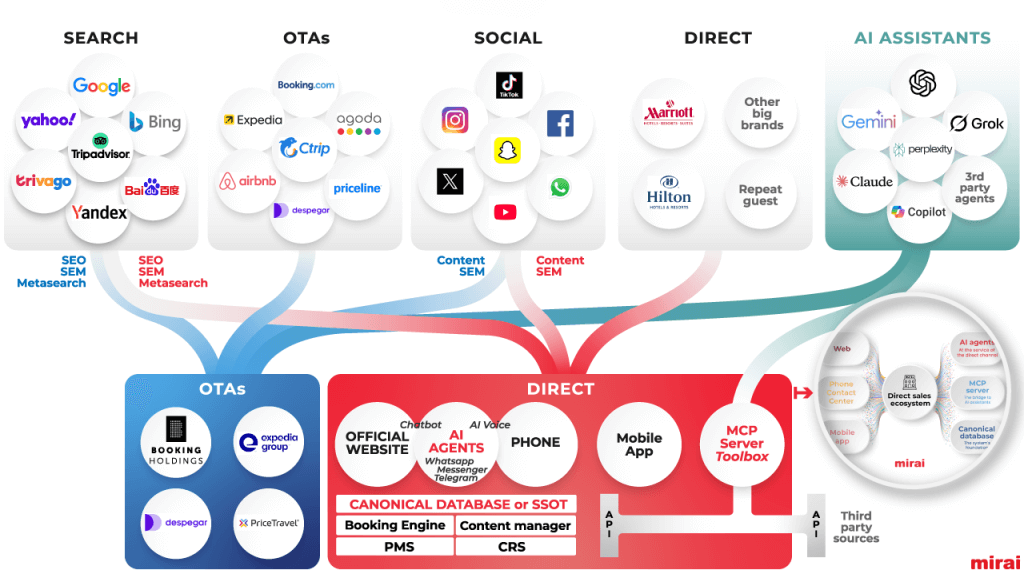
If you’re looking for customer loyalty, you won’t find much of it in the travel industry.
While 74% of business travelers claim to prefer booking travel through one platform, only 34% actually do.
To establish loyalty in a disloyal industry, travel brands must foster real relationships with their customers and that happens by understanding the entire online journey – including knowing where customers are booking if its not with you.
Insights from competitive sales information
While competitive sales information isn’t easy to get, it’s worth the hassle. By identifying your direct competitors based on your customers’ behaviour while developing an understanding of others’ sales funnels, conversion flows, and destination-specific conversion rates, you can see how your performance truly compares.
Let’s look at search.
You know the approximate terms people search to reach your site and what they search when they get to your site. But knowing the same information about competitors’ sites can help you understand the intent of an audience that isn’t engaging with you, but should be. When you know what your prospects search for on- and off-site, you can optimise your outreach, content, and website to increase conversions. If you know that potential customers search for “cheap tickets to [destination]” on competitors’ sites, you can add that long-tail into your content.
Your customers’ browsing and purchasing behaviours, including what sites they came from, what they did on your site and where they went afterward, can differentiate a high-quality lead from a potential dead end.
If customers are comparison shopping by visiting multiple sites, you can see they are cost-driven and probably won’t be loyal to a single platform. Engaging them by determining why they are jumping around (price? perks?) is the key to fostering long-term relationships and customer loyalty.
Read rest of the article at Tnooz




